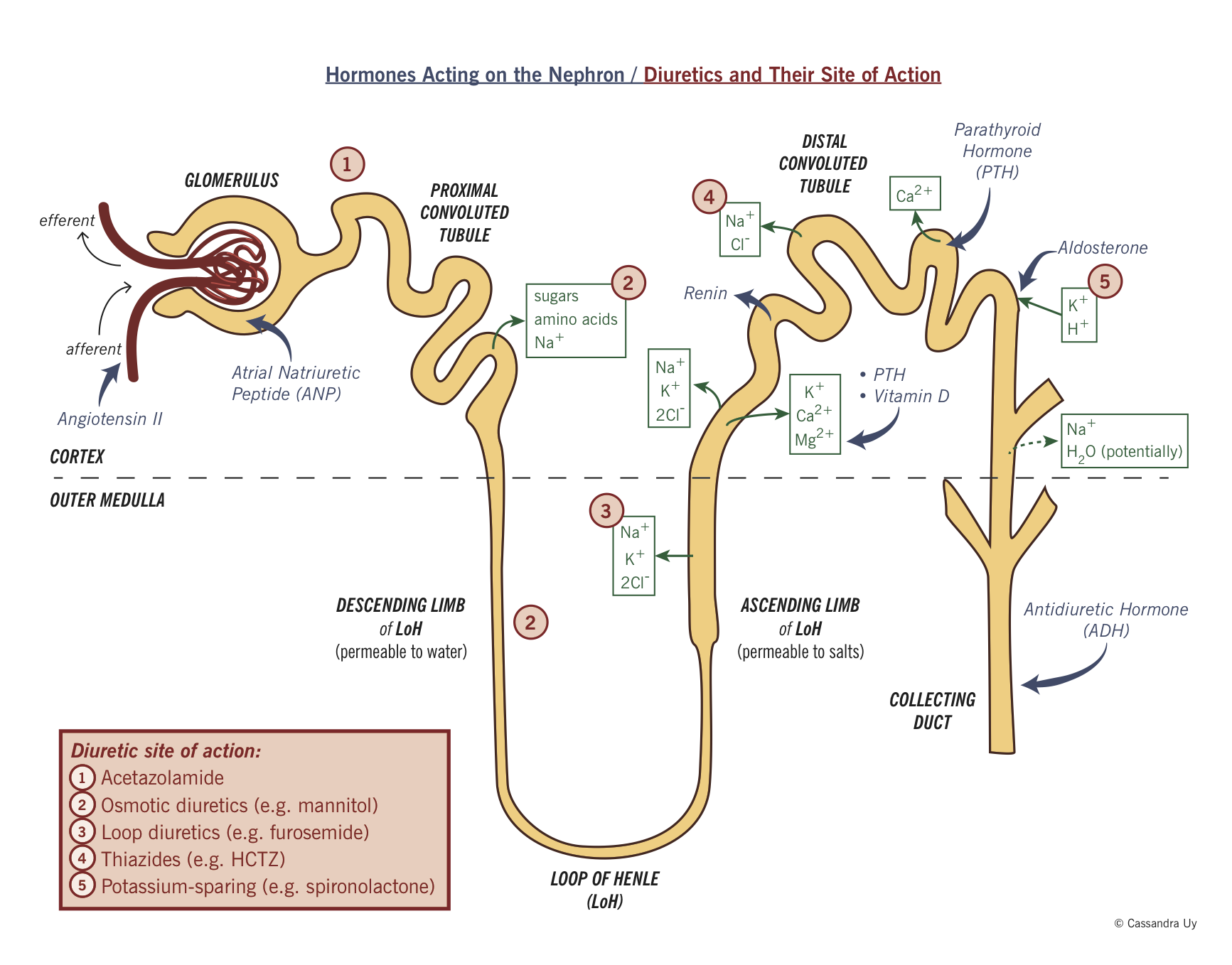

Both phenomena appear to be stimulated by hypothalamic osmoreceptors, although probably not the same ones. There is an interesting parallel between antidiuretic hormone secretion and thirst. Rather, antidiuretic hormone is secreted, allowing almost all the water that would be lost in urine to be reabsorbed and conserved. Should you increase urine production in such a situation? Clearly not. Loss of water results in concentration of blood solutes - plasma osmolarity increases. Imagine walking across a desert: the sun is beating down and you begin to lose a considerable amount of body water through sweating.

Osmotic control of antidiuretic hormone secretion makes perfect sense. As seen the the figure below, antidiuretic hormone concentrations rise steeply and linearly with increasing plasma osmolarity. When osmolarity increases above the threshold, the ever-alert osmoreceptors recognize this as their cue to stimulate the neurons that secrete antidiuretic hormone. When plasma osmolarity is below a certain threshold, the osmoreceptors are not activated and secretio of antidiuretic hormone is suppressed. Osmolarity is sensed in the hypothalamus by neurons known as an osmoreceptors, and those neurons, in turn, stimulate secretion from the neurons that produce antidiuretic hormone. The most important variable regulating antidiuretic hormone secretion is plasma osmolarity, or the concentration of solutes in blood. In healthy humans, antidiuretic hormone has minimal pressor effects.Ĭontrol of Antidiuretic Hormone Secretion It was for this effect that the name vasopressin was coined. In many species, high concentrations of antidiuretic hormone cause widespread constriction of arterioles, which leads to increased arterial pressure. These channels transport solute-free water through tubular cells and back into blood, leading to a decrease in plasma osmolarity and an increase osmolarity of urine. In the absense of antidiuretic hormone, the collecting ducts are virtually impermiable to water, and it flows out as urine.Īntidiuretic hormone stimulates water reabsorbtion by stimulating insertion of "water channels" or aquaporins into the membranes of kidney tubules. Injection of small amounts of antidiuretic hormone into a person or animal results in antidiuresis or decreased formation of urine, and the hormone was named for this effect.Īntidiuretic hormone binds to receptors on cells in the collecting ducts of the kidney and promotes reabsorption of water back into the circulation. A diuretic is an agent that increases the rate of urine formation.

The single most important effect of antidiuretic hormone is to conserve body water by reducing the loss of water in urine. Physiologic Effects of Antidiuretic Hormone Within hypothalamic neurons, the hormone is packaged in secretory vesicles with a carrier protein called neurophysin, and both are released upon hormone secretion. Such precise control of body water and solute concentrations is a function of several hormones acting on both the kidneys and vascular system, but there is no doubt that antidiuretic hormone is a key player in this process.Īntidiuretic hormone, also known commonly as arginine vasopressin, is a nine amino acid peptide secreted from the posterior pituitary. Roughly 60% of the mass of the body is water, and despite wide variation in the amount of water taken in each day, body water content remains incredibly stable. Endocrine System > Hypothalamus and Pituitary Antidiuretic Hormone


 0 kommentar(er)
0 kommentar(er)
